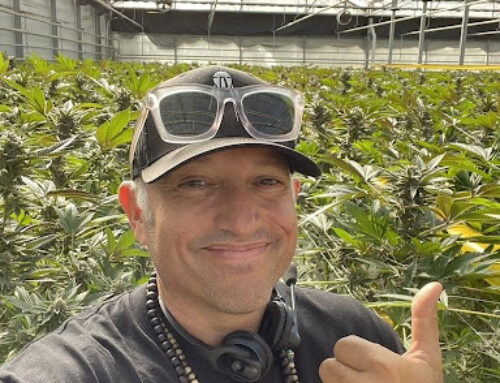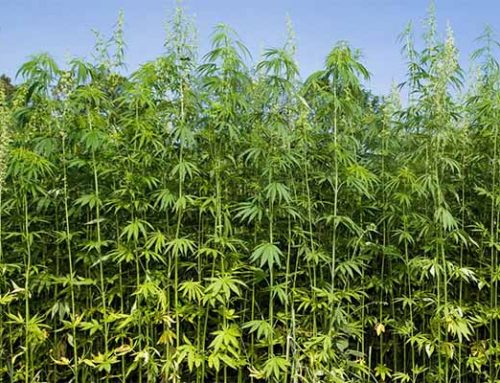Preserving The Cannabis Culture That Raised Me

By Nigel Despinasse —“No weed is legal.” My high school disciplinarian delivered these words to us in detention one afternoon, following a debate about Colorado’s decision to legalize the plant for recreational use. His disdain was mirrored by his actions, as he had just expelled or put on probation many of my friends for their cannabis use. I may have been lucky enough to escape that same fate, but those four words would echo in my head for years to come, proving to be a pivotal moment in my relationship with cannabis. I knew what I was doing wasn’t wrong, it was just illegal.
After high school, smoking transformed from a covert taboo ritual to a form of communion with my closest friends. In college, I met people from all over the world, from every background imaginable. Weed became a kind of common ground, where our differences ceased to exist. Sharing a joint was almost like a new way of making a friend over a cigarette. The trust that one builds in the commission of a crime allows you to form a bond within moments – the kind that would normally take years to make.
Cannabinoids have neuroprotective properties, which in practice means they help slow the degradation of brain cells after impact trauma. This is a fact I learned after meeting Nadir Pearson, a devoted athlete turned staunch cannabis advocate. Our affection for cannabis may have arisen from different places, but our mission would soon become one and the same.
Nadir was looking to start a new club, one that would educate and empower students in the cannabis industry, and eventually, design an infrastructure that would deliver opportunities for meaningful employment in a rapidly evolving space. It felt almost prophetic, and I knew then that smoking weed was more than just an act of rebellion – it was a calling.
As we built SMART (Student Marijuana Alliance for Research and Transparency), we started to connect with students who had a spectrum of interests: research, policy work, business, and even closeted users who just wanted to learn more about what they were consuming. We were all committed to learning cannabis together, myself included. We worked hard to advocate for students’ rights to safe cannabis consumption. Having this platform to educate my peers lit a fire under me to make this industry as accessible as possible.

Despite the momentum and velocity of this movement, it isn’t without its obstructions. The fundamental issue lies in the deficit of opportunities for entering the industry, rights to consume and study, and resources to learn more about this plant. Lack of legality still endangers the lives of millions whilst also posing significant threats to forward progress. If we have no accepted medical use for cannabis because of the lack of research, and have no research because of its illegality, then what needs to happen in order for us to move forward?
If we move forward with legal cannabis, where does that put the mission of the culture? I interned at a tobacco company and got an inside look at the wolves circling the industry. People who have the means to produce endless amounts of biomass and flood the market with product in order to get ahead, armed with ample resources to acquire and expand, and people with visions of becoming billionaires from this industry.
What is this industry becoming? The mission of the culture has always been to have cannabis be accepted and accessible. If accessibility and acceptance is the goal, then that means making the market accessible to these players who have a laundry list of resources. Once we have legalization, what’s the next step? What makes cannabis any different than any other commodity?
At one point the foundation of this industry was built as an oppositional force because we were the outcasts, and that foundation is slowly eroding as legalization becomes imminent. Currently, the industry still has the power to own the narrative of what makes cannabis different, but when the doors open and legalization comes, that narrative is out of our hands.
The people who walked so we could run risked everything to have the opportunity for cannabis to be accepted, and the culture hasn’t yet calculated the cost of acceptance.
If our culture is rooted in opposition, and grown by acceptance, how do we honor the pioneers of the industry when it’s time to decide what direction the culture needs to take in the face of legalization? The narrative that needs to be built is one that’s focused on the end user while also doing justice to the plant that brought us together in the first place.
Working at a cultivation center helped drive home why this culture is so important to me. Having a small shop that works in service of both the patients and the plant exposed me to a different sense of commitment to the culture in me. It ingrained a sense of duty in me that I hadn’t experienced before, and was the first real example I had seen of a business putting people before profits. Seeing a community that genuinely cares about its patients should be a staple in this industry, not an exception.
At a town hall meeting where the Department of Business Regulation was looking to stop allowing patients to use out-of-state medical cards, patients were given time to on stage to give testimony about why this amendment shouldn’t be passed. A woman spoke about how RSO eased the pain for her bedridden son dealing with terminal illness, a man spoke about his tremors from Parkinson’s being eased by smoking, and another mother talked about her mute, neurodivergent son being able to have conversations after ingesting his oil. To date, I haven’t had a moment that cemented my love of this industry more.
Today, I find myself in the middle of this industry, standing on the shoulders of the giants who risked everything for it, and rubbing elbows with people who are actively working to leave their mark on cannabis by being stewards of the plant. This community has not only built me up but has shown me support and compassion, and I’m eternally grateful for that. This community has instilled the fact in me that all cannabis is legal.




































